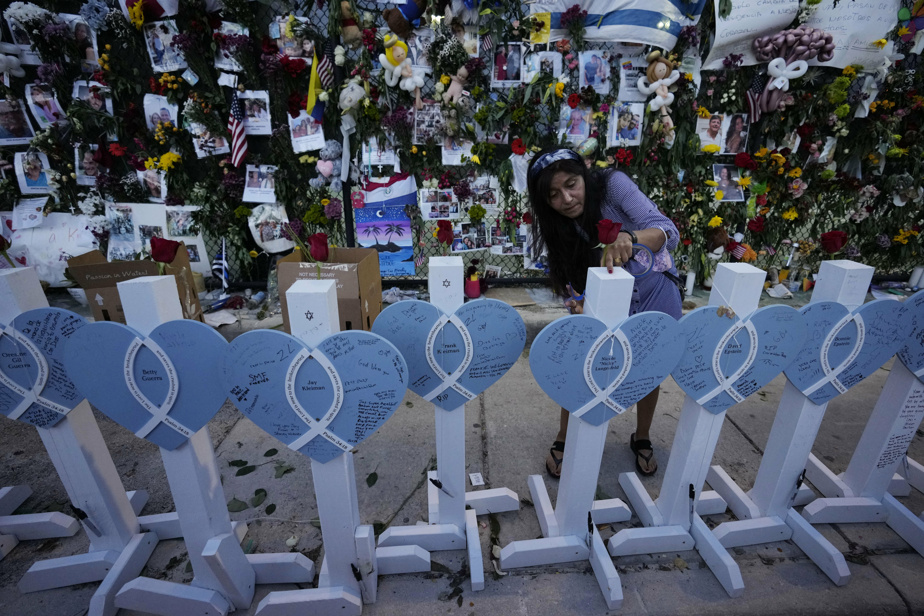A Miami-Dade judge said Wednesday that victims and families who suffered losses in the collapse of a 12-storey building in Florida will be able to receive damages of at least 150 million US dollars.
Kurt Anderson
News agency
That amount includes nearly 50 million insurance on the south towers of the Champlain complex and at least $100 million related to the sale of the site, in Surfside, where the structure once stood, Judge Michael Hansmann explained during a hearing.
“The court’s concern has always been the victims here,” he said. Judge Hansmann further noted that those eligible for compensation also include visitors and tenants, not just apartment owners. He said that their rights are protected.
The $150 million does not include any of the many lawsuits already filed since the June 24 crash, which killed at least 97 people. The judge said these lawsuits were combined into one class action suit that would include all victims and their family members if they so desired. According to him, no element will be neglected in relation to these lawsuits.
So far 95 victims have been identified, many using DNA testing. Relatives and friends of three missing people say they are waiting for news from relatives who were allegedly in the building. This could bring the total number of victims to 98. Research efforts continue.
The site was completely cleaned of debris under the watchful eye of investigators from the National Institute of Standards and Technology — the agency leading a federal investigation into the collapse — reported on a court official appointed by Judge Hansmann to manage finances for the board of directors of the building complex.
The rubble, which is an essential guide, is preserved in a warehouse in the Miami area. The rest are in nearby vacancies, attorney Michael Goldberg said. He explained that these items represented potential evidence for the prosecution and that other experts could examine them.
The building had just passed a new approval process that was required after 40 years of construction, when it collapsed. Three years ago, an engineer warned homeowners of serious structural problems that required immediate attention. Most of the concrete reforms and other works have yet to start.
Make it a memorial place?
There are still differences of opinion among the unit owners regarding the future of the site. Some want reconstruction in order to return to live there. Others argue that it should be left as a memorial site to honor the memory of the victims. The third option suggests a combination of the first two ideas.
At the hearing, one of the owners, Risa Rodriguez, said she found it hard to imagine going back to live in a place where so many friends had died. The site is considered a burial place.
The attorney representing the other co-owners, Oren Cytrynbaum, believes it is important to think creatively about selling the land, bearing in mind that requirements for future developers, such as outfitting a monument, could be added.
However, he said, time is running out to sell, as victims and families need money to start building their lives again.
Miami Beach Mayor Dan Gilber has offered land in his neighboring town to build a monument.
All options are being considered, the judge said, adding that any memorial should be paid for with public funds and not victims’ money.




